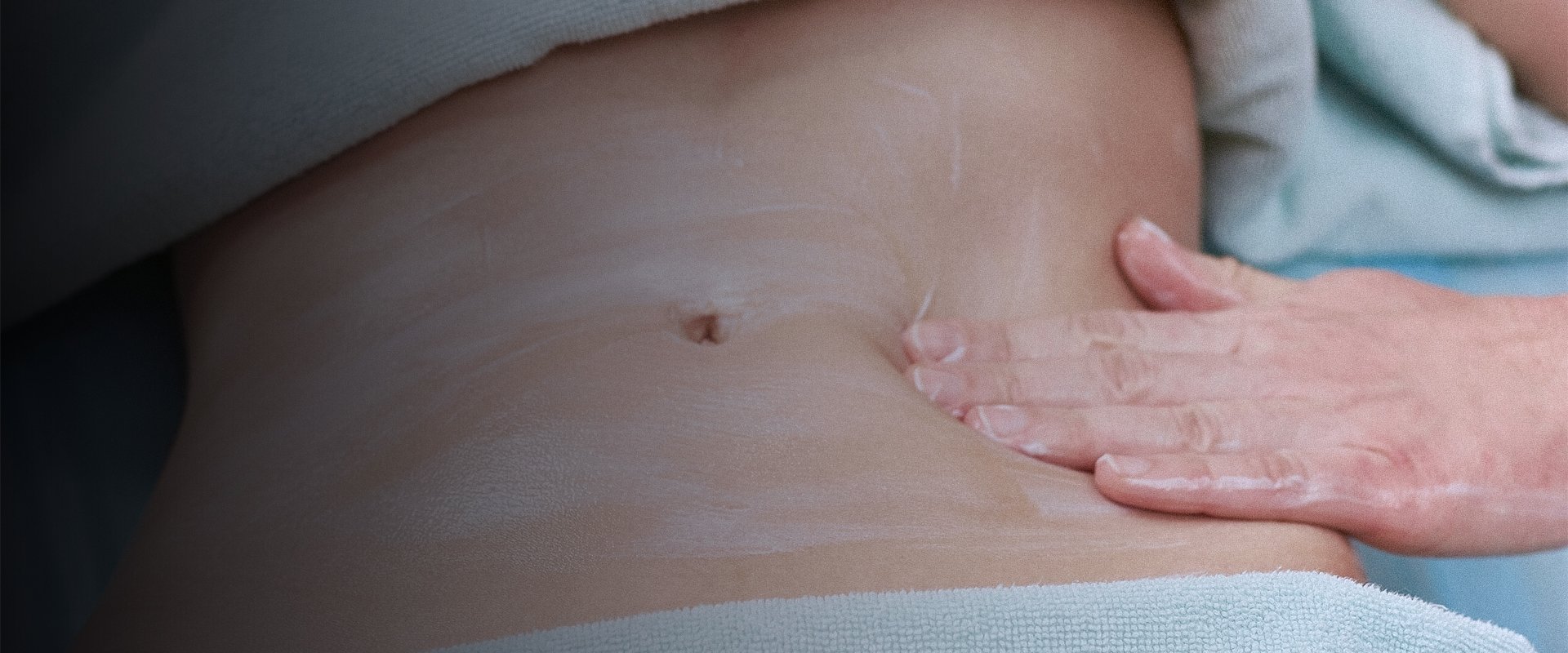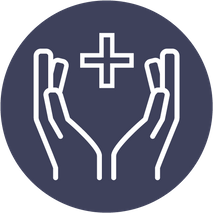
Physical Therapy for Diastasis Recti
AT EVOLVE
HOW CAN PHYSICAL THERAPY HELP TREAT DIASTASIS RECTI?
Diastasis recti is a condition that describes a widening of the center line between the right and left rectus abdominis muscles, a connective tissue structure called the linea alba. This condition is most common during pregnancy but it can happen in other populations of men and women as well as infants. While some degree of separation can be normal during pregnancy, a significant widening may be associated with decreased abdominal and pelvic floor muscle function as well as abdominal and lumbopelvic pain. Physical therapists can help assess for diastasis recti and provide a program of exercises to manage symptoms and help you return to your normal activities.
WHAT DOES PHYSICAL THERAPY FOR DIASTASIS RECTI LOOK LIKE?
Like with all conditions, we will begin with an initial evaluation to better understand the pattern of symptoms you are experiencing as well as your goals and needs. We will ask you about the activities within your life that are being impacted by these symptoms as well as about your health history. A physical examination in which your therapist palpates or gently feels the abdominal area to look for a separation between the muscles as well as an assessment of your abdominal muscles is common. We then develop an individualized treatment plan based on your needs and the best evidenced-based techniques for the management of Diastasis recti. Your treatment program may involve hands-on manual therapy techniques performed by your therapist as well as movements and exercises performed by you in the clinic and at home.
WHAT IS DIASTASIS RECTI?
Diastasis recti is a condition that normally occurs in pregnancy but can be seen in other populations of adults and even infants. The hormones associated with pregnancy, which soften the connective tissue, as well as the stretching of the uterus and abdomen to accommodate a growing fetus, is what causes the widening of the linea alba and a separation between the two rectus abdominis muscles. These abdominal muscles are the two superficial muscles that many know as the “six pack muscles.” These muscles are two of the most visible muscles but only comprise one part of the “core”. The inner core muscles such as the diaphragm, pelvic floor, transverse abdominis and multifidus are responsible for creating stability and control around the spine and pelvis and assisting with normal posture and breathing.
Diastasis recti is normal in pregnancy and usually resolves on its own in the postpartum period. A diastasis recti that does not resolve can contribute to decreased pelvic floor and abdominal muscle function and in some cases, lumbopelvic and abdominal pain. This is more common in multiparous women due to the repeated stretching. Some individuals notice a tenting or coning of their lower abdomen upon sitting up as a result of the changes in abdominal wall support and many of those individuals consider this an unwanted side effect of diastasis recti.
The exact amount of widening of the linea alba that is considered “pathological” is controversial, but if you are experiencing symptoms that might be associated with a diastasis recti and your therapist can observe and palpate a separation between the abdominal muscles, you will likely benefit from physical therapy.
End Injury Progression
Physical therapy for Diastasis Recti has proven to prevent injury, slow and even stop pain issues, improve performance, and reverse injury progression in many cases.
Relieve Pain
The movements used in this technique can target your entire body helping you to manage discomfort and pain during the course of your physical therapy treatments.
Improve Range of Motion
Posture awareness is an important area to focus on due to the fact that certain positions may cause you further discomfort and pain.
Restore Mobility
You can regain mobility and flexibility by taking part in the stretches and exercises as prescribed by your physical therapist.
How Long Will Physical Therapy for Diastasis Recti Last?
If you decide to work with a physical therapist to help with Diastasis Recti issues, your entire treatment plan could consist of around 8-20+ different physical therapy sessions that will each last 60-90 minutes. Once you complete your customized physical therapy treatment plan, you will be able to continue to do the prescribed stretches and exercises utilized during your PT sessions yet in the comfort of your own home.
PHYSICAL THERAPY INTERVENTIONS FOR DIASTASIS RECTI
Treatments for diastasis recti will always be individualized but several physical therapy interventions have been shown to be helpful in the management of this condition:
Patient education: Physical therapists can help you understand this condition and how it can be managed. Diastasis recti is a normal and necessary part of pregnancy and is nothing to be feared. Your PT can help you understand what to expect and what steps you can take in the ante- and postpartum periods to help optimize function of the abdominal wall.
Taping and bracing: Taping and bracing of the abdomen can be helpful for some individuals to support the abdominal walls in an optimal position and also provide a cue for activating the muscles correctly. Your therapist can determine if you are a good candidate for bracing and taping and teach you how to wear the tape or abdominal brace correctly.
Exercises: Exercise is an important tool to help optimize abdominal muscle function, reduce the width between rectus abdominis muscles and to increase the tension in the linea alba. Many women will benefit from beginning an exercise program in the prenatal period which, while not preventative of a diastasis recti (remember, this is a normal part of pregnancy), can support optimal performance and function of the inner abdominal muscles. Your physical therapist can teach you which exercises are safe to perform during pregnancy and which you should avoid. In the early and late postpartum period your therapist can monitor your degree of separation and progress your exercise program in a safe manner to help you safely return to your prior activities.
Posture and activity modification: Optimizing postural alignment during the early and late postpartum time period can help with recovery from a diastasis recti. Holding and carrying an infant and toddler often leads to postural alignment that is not optimal for abdominal activation and your therapist can teach you about your posture as well as how to perform activities like lifting, safely.
While a diastasis recti is not to be feared, it is a good idea to work with a knowledgeable physical therapist who can help you take steps during pregnancy and afterward to support your body’s healing process. If your diastasis recti is not associated with pregnancy, the same concepts apply to helping you optimize abdominal function. In either case, the physical therapists at Evolve are here to show you how to safely address symptoms of a diastasis recti. Call to schedule an evaluation today.
Mill Basin (located in Harbor Fitness)
6161 Strickland Ave
Brooklyn, NY 11234
Monday: 7am-8pm
Tuesday: 7am-8pm
Wednesday: 8am-5pm
Thursday: 7am-8pm
Friday: 8am-1pm
Park Slope (located in Harbor Fitness)
550 5th Ave.
Brooklyn, NY 11215
Monday: 9am-8pm
Tuesday: 8am-6pm
Wednesday: 9am-8pm
Thursday: 8am-6pm
Friday: 8am-3pm
Gravesend
372 Avenue U
Brooklyn, NY 11223
Monday-Thursday: 8am-8pm
Friday: 8am-3pm
Kings Highway
945 Kings Highway
Brooklyn, NY 11223
Monday-Wed.: 12pm-8pm
Ready to take the next step to a healthier you?
Contact Us Today!
PHYSICAL THERAPY FOR DIASTASIS RECTI!
Need physical therapy for Diastasis Recti?
Let our caring and compassionate physical therapists help you with relieving pain while getting you back on your feet comfortably.
Call now to schedule your first PT consultation free of charge.
Call: 1-718-258-3300







